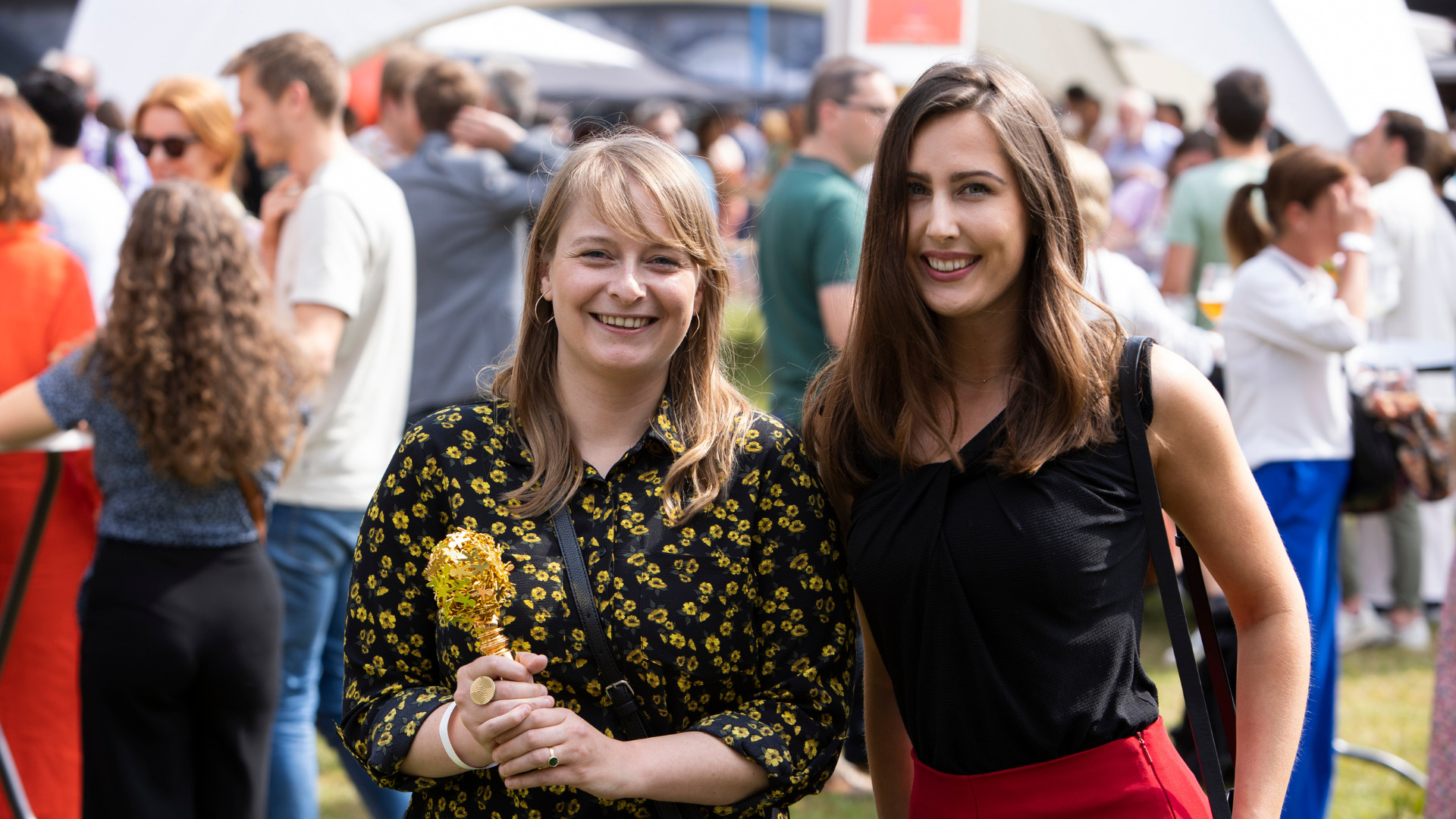At the Randstad Employer Brand Awards, UAntwerp was named the second best employer in the social profit sector. ‘This is a great recognition for our university’, says the Human Resources Department, ‘and we would particularly like to thank our 6,000+ employees. They are truly our main ambassadors.’
With its Employer Brand Awards, HR services provider Randstad annually investigates which companies are considered the most attractive employers. This is no easy feat: research is conducted in 31 countries among almost 6,000 companies and 163,000 respondents who form a representative cross-section of the population.
Our university received the award during a ceremony on 12 May at Kinepolis Antwerp. The invitation email already hinted that there was a good chance of a podium finish. ‘We were led to understand that it might be in our best interest to attend’, says Talent Management domain coordinator Marjolijn De Clercq.
UAntwerp came second in the social profit category, after Handicap International. KU Leuven and UGent came third and fourth respectively. Our university is the winner for the ‘job content’ criterion, and also took top three spots for ‘working atmosphere’, ‘pay and benefits’ and ‘financial health’. The top three commercial companies were VRT, Pfizer, and Mediahuis.
Employer branding: a long-term investment
‘An employer brand can be described as the image that a company projects to its own employees, job applicants, and society’, explains Karen Vandevelde, head of the Human Resources Department. ‘Important criteria that determine the attractiveness of an employer in the non-profit sector include the working atmosphere, job security, pay and benefits, the work-life balance, the location of the workplace, and corporate social responsibility.’
Employers can also actively work on their brand. ‘Strong communication, for example during recruitment and selection, and social visibility can further strengthen the image. But word of mouth from our own employees is also very important’, explains Karen. Employer branding is not just a matter of marketing, but a long-term investment. ‘The narrative has to make sense’, Karen stresses. ‘It’s like putting icing on a cake: if the cake itself is bad, the icing won’t save it. As a university, we want our employees to be satisfied with the working atmosphere, their pay and their career opportunities, and to feel a strong commitment to our university throughout their careers.’
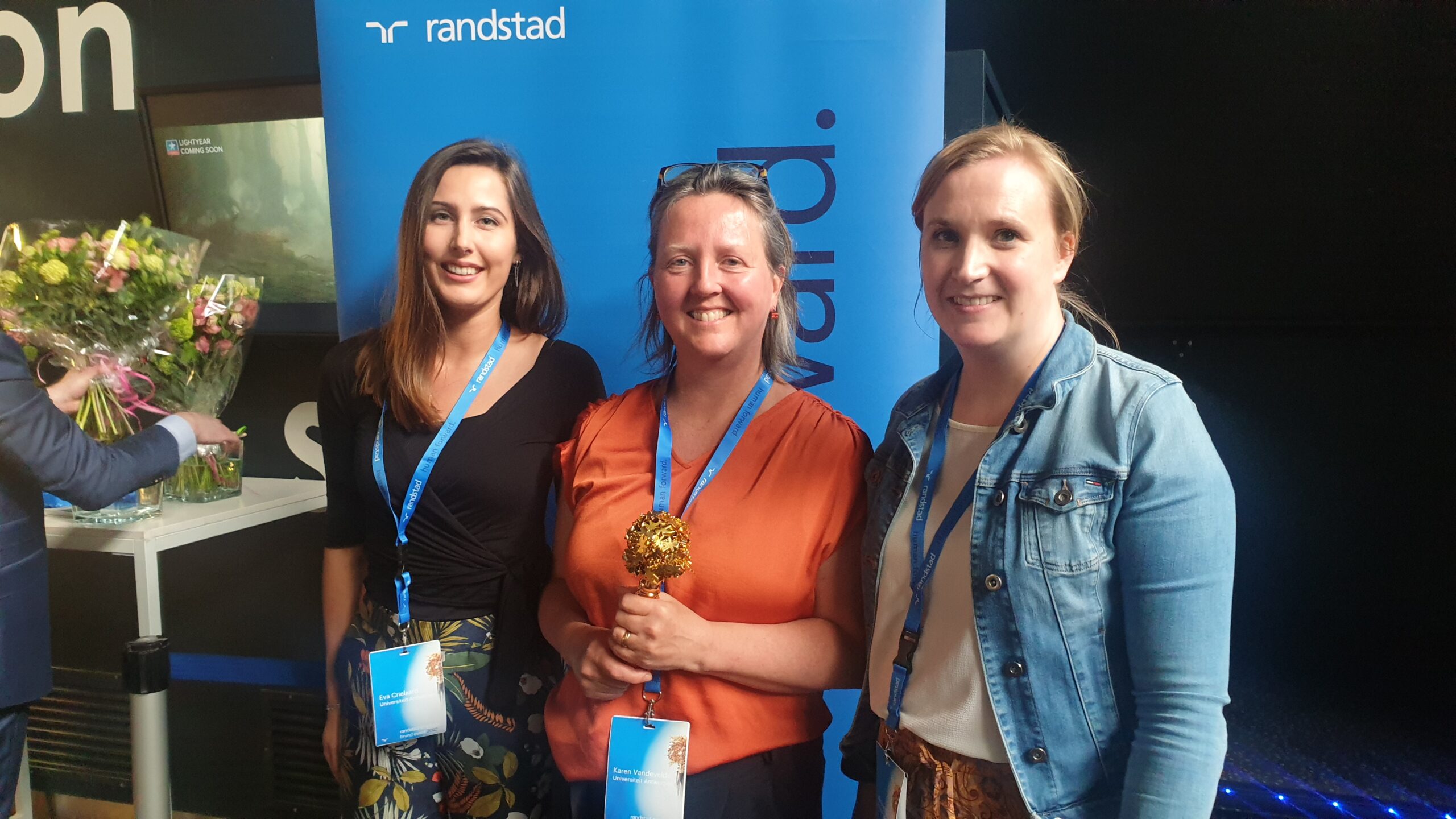
The fact that UAntwerp came out on top for the ‘working atmosphere’ criterion is a nice bonus. ‘The working atmosphere is undoubtedly one of the strong points of our university’, says Recruitment & Selection policy officer Astrid Van Doren. ‘No matter what job you do, you always come into contact with a wide variety of people and opinions. That’s a big plus. And thanks to the casual atmosphere, it’s easy to reach out to your colleagues.’
According to the team, other strong points of our university are the pleasant working climate, including a large number of paid holidays and opportunities to work from home, as well as a wide range of training courses, including career guidance. ‘We also specifically want to be a warm, caring employer. If you’re going through a rough time, you can find a sympathetic ear’, Marjolijn adds.
‘Energising working environment’
British professor Suzie Thomas, who started working at the Department of Heritage Studies last September, is happy she chose UAntwerp for several reasons. Before, she worked at the University of Helsinki, where she had a great time. ‘But then I got an attractive offer to become a professor at the Department of Heritage Studies and to help set up the new master programme. I was in doubt for weeks, but finally I decided to take the plunge. I wasn’t familiar with the University of Antwerp, but the fact that it was a young university intrigued me. I was curious what it would be like to work in an organisation that is unburdened by the weight of centuries of tradition. I hoped that this would facilitate innovation, and I was right: the working environment here feels a lot more energising.’
‘The way I was welcomed by the International Staff Office as an international newcomer was absolutely fantastic. And the atmosphere among colleagues is also very nice. Everyone is open and supportive, without any sense of competition.’
Professor Suzie Thomas – Department of Heritage Studies
She describes her first academic year as very positive. ‘The way I was welcomed by the International Staff Office as an international newcomer was absolutely fantastic. And the atmosphere among colleagues is also very nice. Everyone is open and supportive, without any sense of competition. In my experience, there’s no hierarchical atmosphere. It’s also great that team building days and outings are organised to get to know each other better.’
The fact that she works right in the centre of Antwerp is an added bonus. ‘My office is in the beautiful building on Blindestraat, where students also have classes. It’s a thriving hub of activity.’
War for talent
In times of labour shortages, it’s more important than ever for universities to have a strong employer brand. ‘There’s a war for talent going on, so having an attractive employer brand definitely gives you an edge’, says Marjolijn.
That’s why the Human Resources Department makes every effort to convey a positive image. Astrid: ‘When posting job vacancies, we’re very clear about what we stand for as an employer, for instance by including employee testimonials on our job website. The same goes for social media. On LinkedIn, we do more than post job vacancies, because we also report on groundbreaking research and major events. In recent years, we’ve also been appearing more often in traditional media with our research projects, which also contributes to a strong employer brand.’
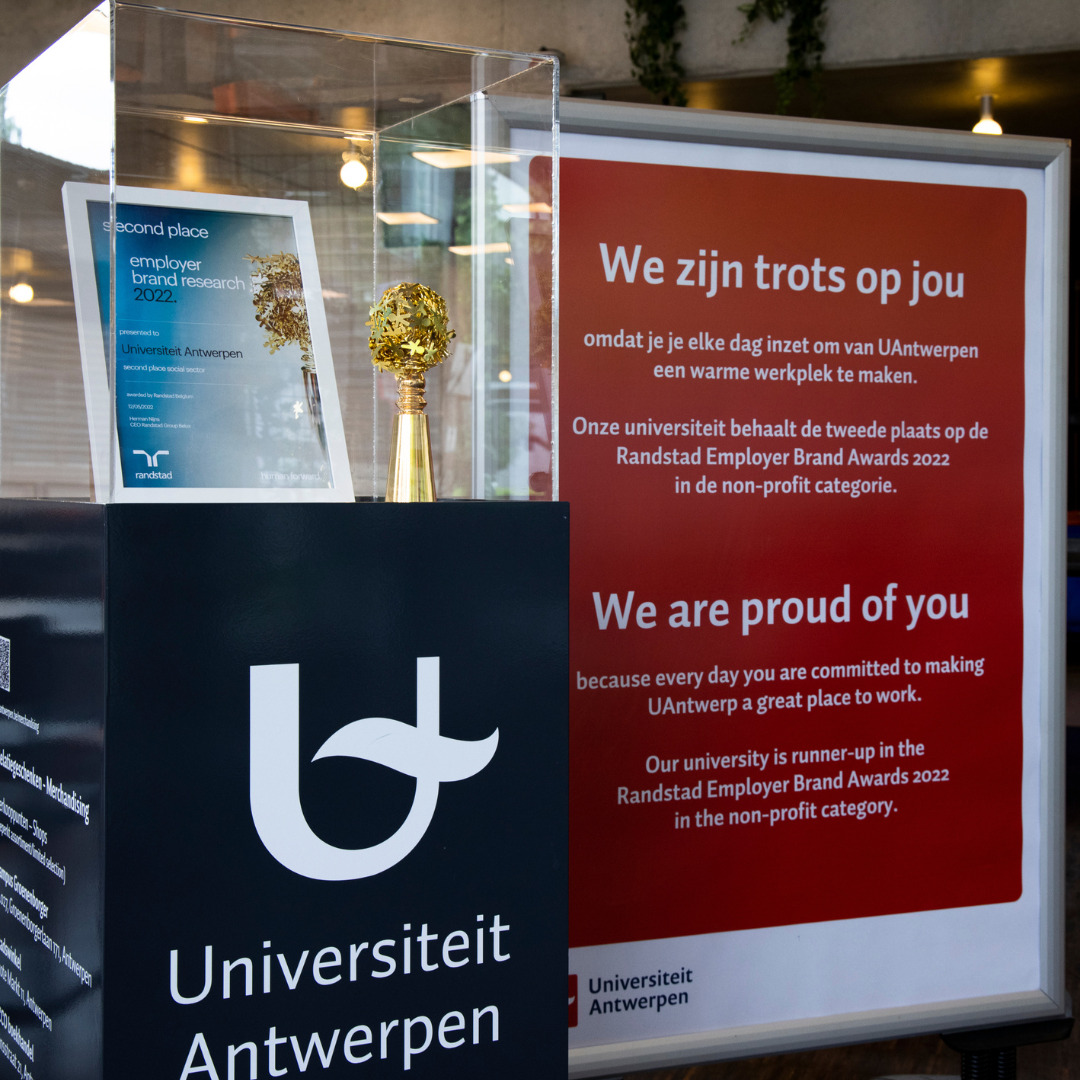
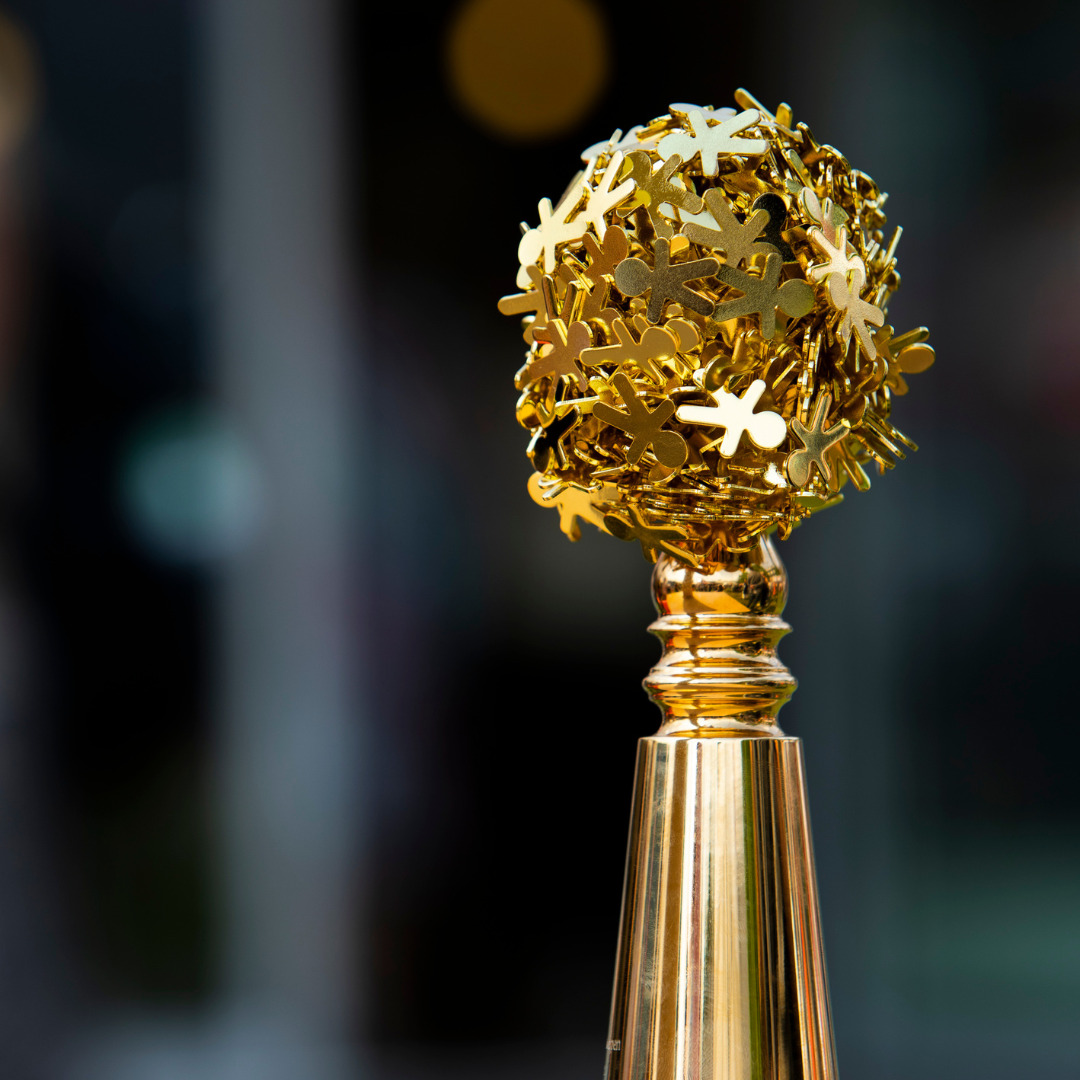
First contact with job applicants is also important, as this is an excellent time to convey a positive image of the university. ‘Every candidate gets personal feedback’, says Recruitment & Selection officer Eva. ‘We aim to give everyone recognition and to offer advice that can be useful for later applications, even to candidates who don’t get the job in the end. We’re also firmly committed to inclusiveness and diversity. We offer every applicant the opportunity to meet additional needs related to a disability, so that someone who is on the autism spectrum, for instance, can feel fully empowered during the interview. Sometimes, just giving a candidate some extra time is already very helpful.’
‘I felt welcome from day one’
Hadi Sultan, a case manager at the Financial Operations Department, can also testify to this supportive attitude. ‘I arrived in Belgium seven years ago as a refugee from Syria. When I applied for this job four years ago, my spoken Dutch was not that great, so I was very nervous before the interview. The head of department noticed this and really put me at ease, so the application went smoothly.’
His colleagues also took excellent care of him. Hadi: ‘They made me feel welcome from day one and were happy to help me if I didn’t understand a word or an expression. They also regularly struck up a conversation with me, so my Dutch improved rapidly.’ Today, he’s still very happy with his job and his colleagues. After work, they sometimes meet up for a walk or a game of badminton. ‘I’ve felt comfortable here from the start, and I feel that my work is appreciated. That’s worth a lot’, he concludes.
‘First contact with job applicants is also important, as this is an excellent time to convey a positive image of the university. Every candidate gets personal feedback. We aim to give everyone recognition and to offer advice that can be useful for later applications, even to candidates who don’t get the job in the end.’
Eva – Recruitment & Selection officer
There are no better ambassadors than satisfied employees. Astrid emphasises that the award is the merit of every colleague. ‘We can only have a positive brand image if every employee actively conveys that image both internally and externally. So I definitely urge everyone to keep up the good work. The power of a network of more than 6,000 people can’t be underestimated and ensures that we can continue to attract talent for new vacancies.’
Show who we are
Everyone who comes into contact with our university inevitably gets a certain impression of UAntwerp as a workplace. Students see assistants and lecturers teach, or get help from someone at an administrative service. Take Eva, for instance: ‘While studying at UAntwerp, I always thought it was a nice place to be. So I ended up applying for a job here’, she says. Researchers also contribute to the image of UAntwerp as they’re often in close contact with external organisations or companies.
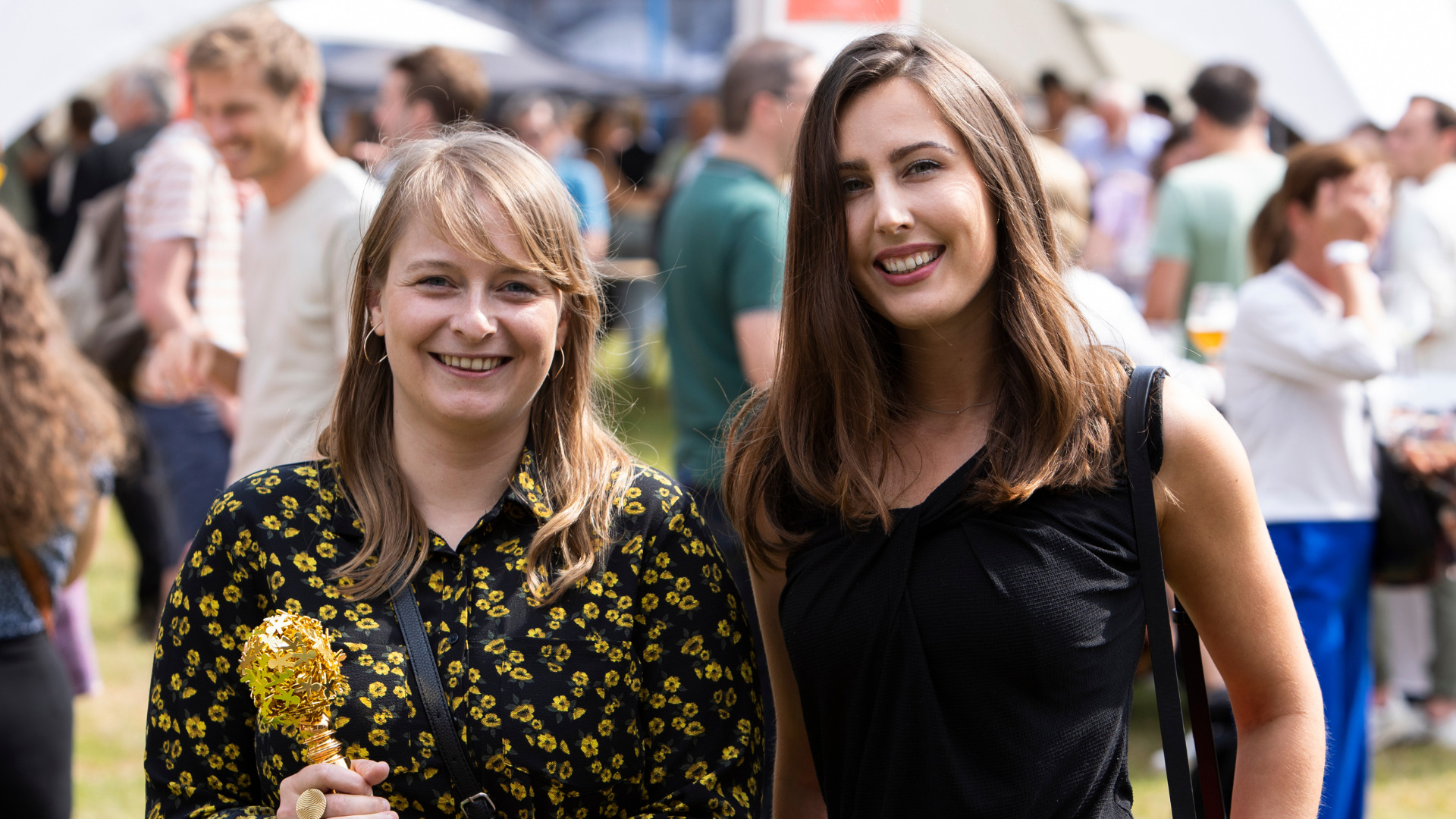
The job of creating a strong employer brand is never done. In the future, the team wants to focus even more on storytelling, including on social media. Astrid: ‘We want to create more video content, so we can share lively and engaging stories. We’re thinking of including expressive visuals of the many beautiful workplaces at our different campuses, for instance.’ In addition, the team wants to pool all sorts of information on working and living at our university, and use it to attract international researchers.
‘Of course, this award is also a great excuse to boast a little bit, for once. We have every right to be proud of what we’ve achieved together with all our colleagues. This award is an opportunity to show who we are’, Marjolijn concludes.


